.
12.08.2016
Chinesischer Satellit soll spooky Einstein Behauptung überprüfen
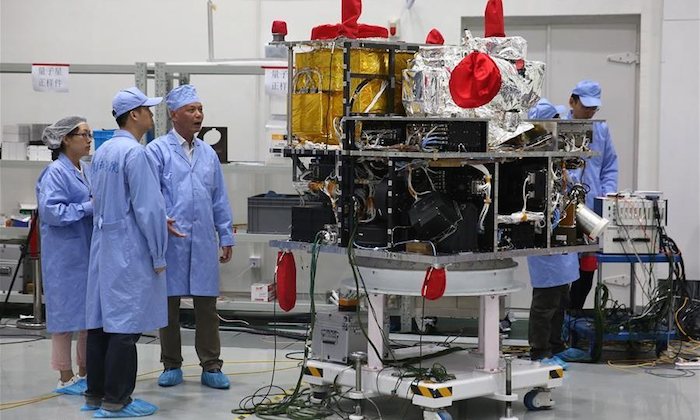
The world’s first quantum satellite at the Shanghai Engineering Centre for Microsatellites.
.
Sometime this month, China is planning to launch a satellite that could be a first step towards establishing a “hack-proof” communications network.
The satellite is a collaboration between the Chinese Academy of Sciences and the Austrian Academy of Sciences. It will be launched from China’s Jiuquan satellite launch centre in Inner Mongolia aboard a Long March 2D rocket.
It will test the quantum phenomena that govern the sub-atomic world of particles. These are often bizarre: particles can be in two places at once, they can behave like waves and solid particles, they don’t quite know exactly where they are – the list goes on.
However, one of the weirdest behaviours is the one Einstein described as “spooky”. It is termed entanglement. When two particles interact with one another, they become “entangled”, and any subsequent interaction that one of those particles has immediately affects the other one.
According to theory, this entanglement persists over any distance, but so far researchers have only tested it across the 143km that separates the Canary islands of La Palma and Tenerife. The new satellite will attempt to communicate with ground stations in Beijing and Vienna, and test entanglement over 1,200km.
No one understands the mechanism by which entanglement works, but if it can be harnessed it offers “hack-proof” communications. This is because any eavesdropping would automatically change the message. Thus the intended recipient would know the signal had been tampered with.
Military and governmental applications are obvious, as are secure on-line shopping and banking. Other countries, such as Japan, UK, Italy, Canada and Singapore are also pursuing quantum satellites, but the US appears not to be investing very much in the technology.
Quelle: theguardian
-
Update: 15.08.2016
.
Erfolgreicher Start von Long March-2D mit China´s Quantum-Satelliten
-

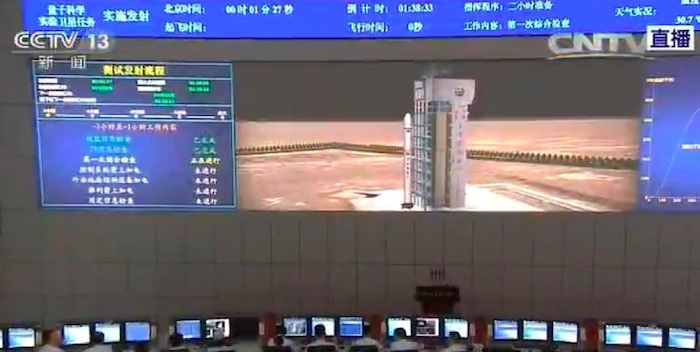
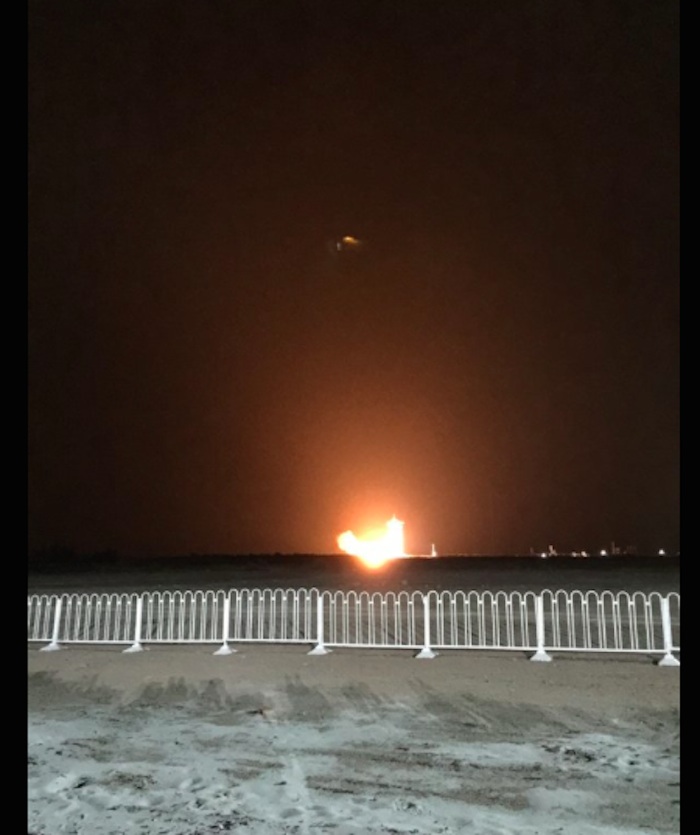
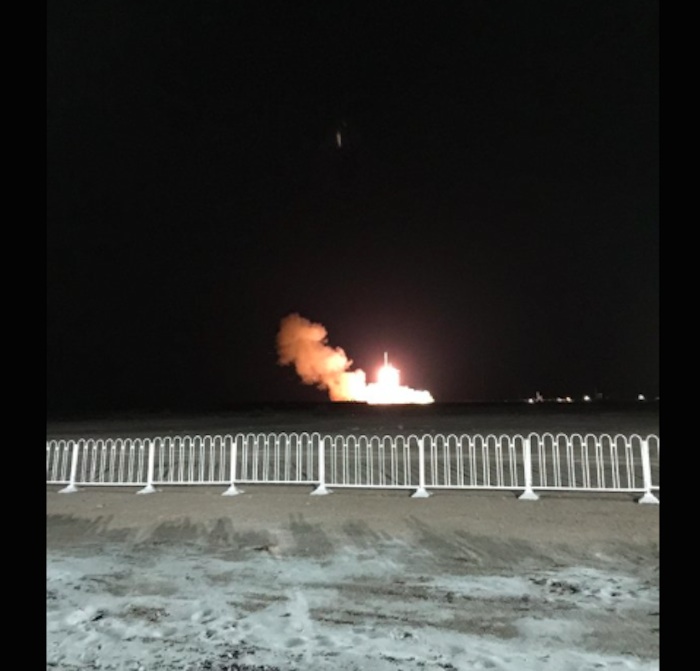
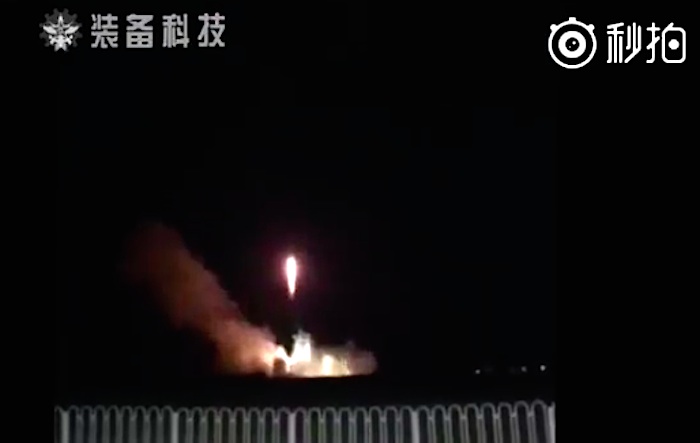
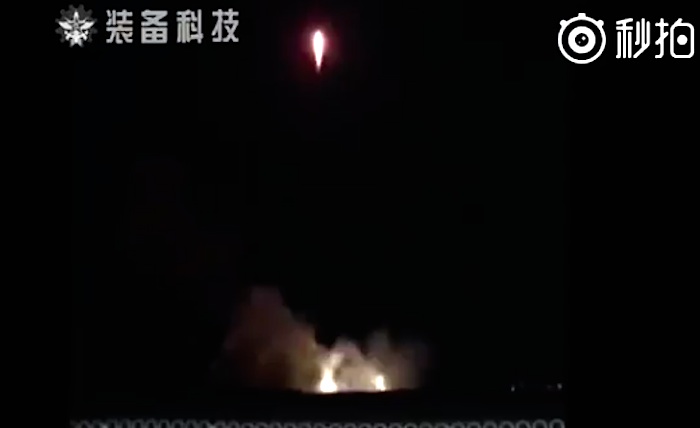
Quelle: CNTV
---
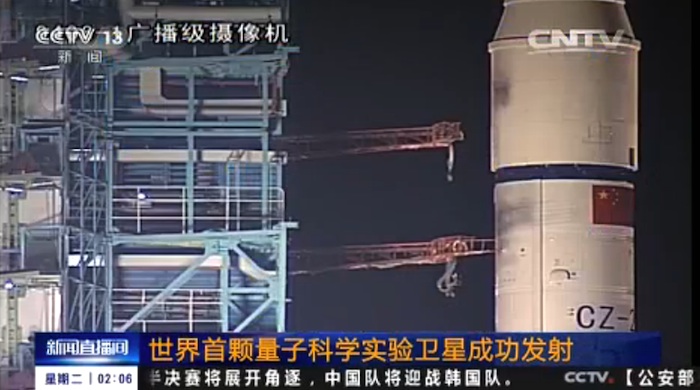
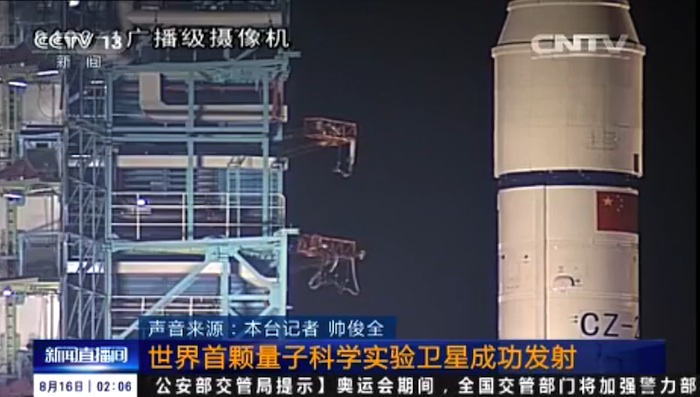
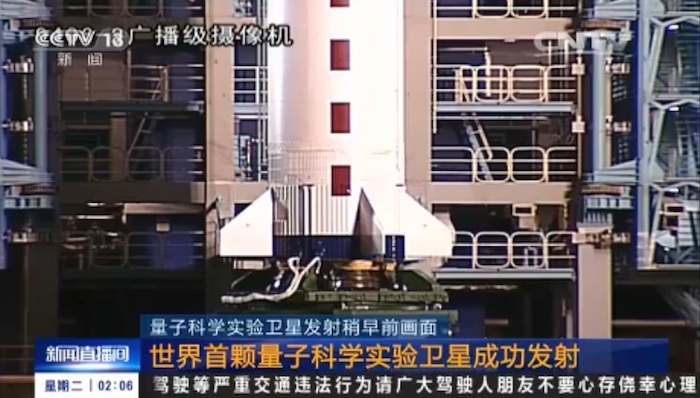
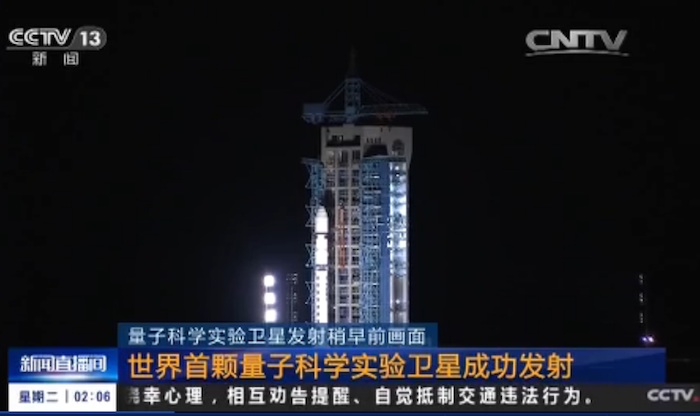
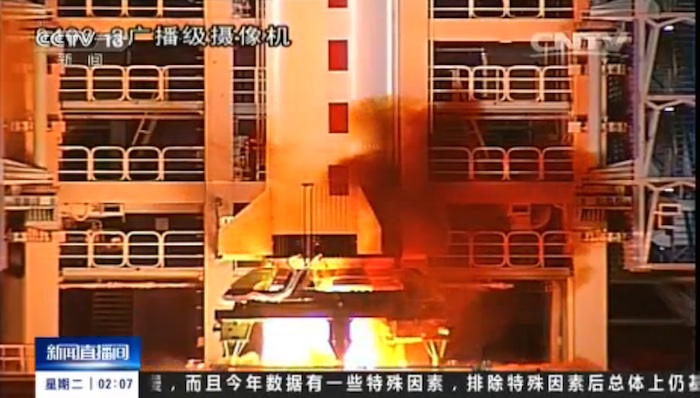
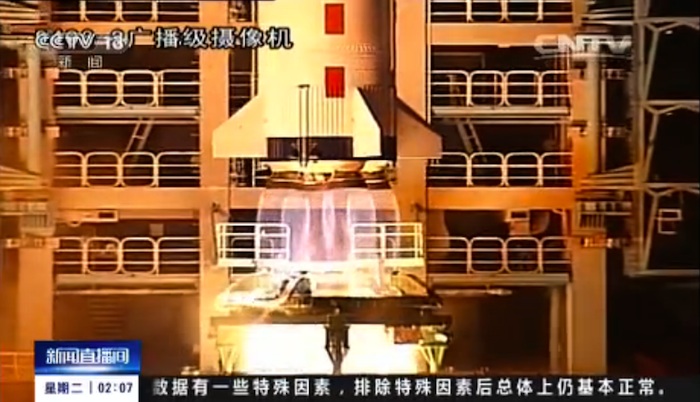
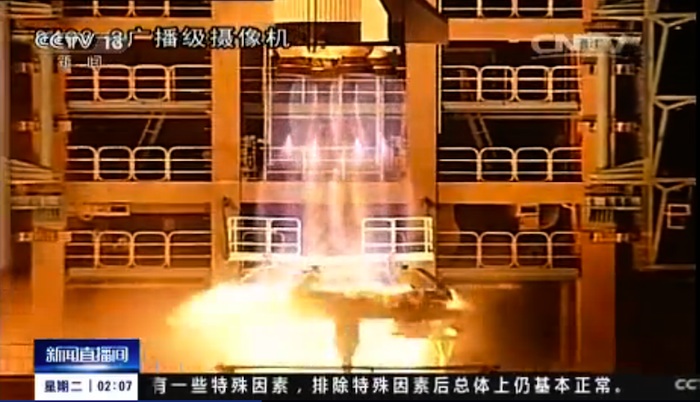
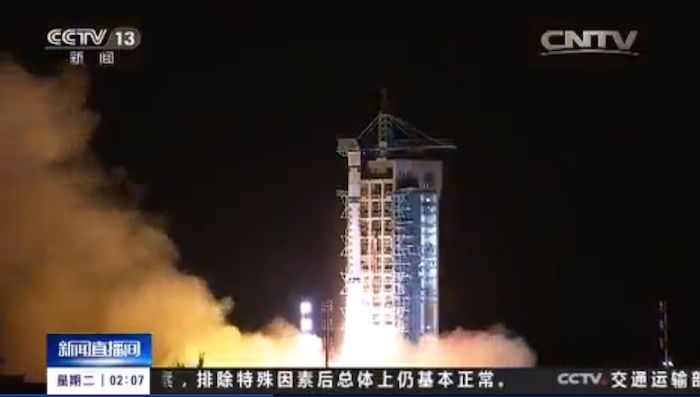
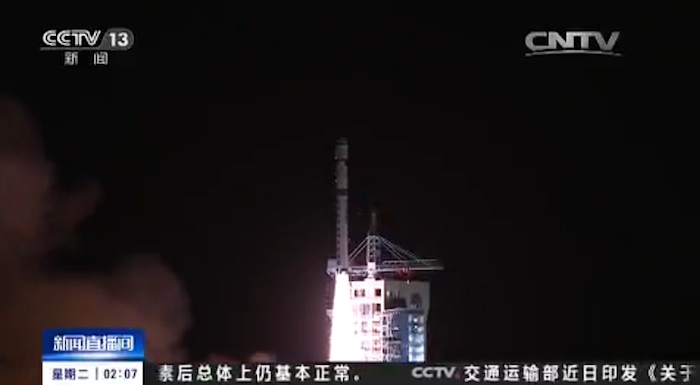
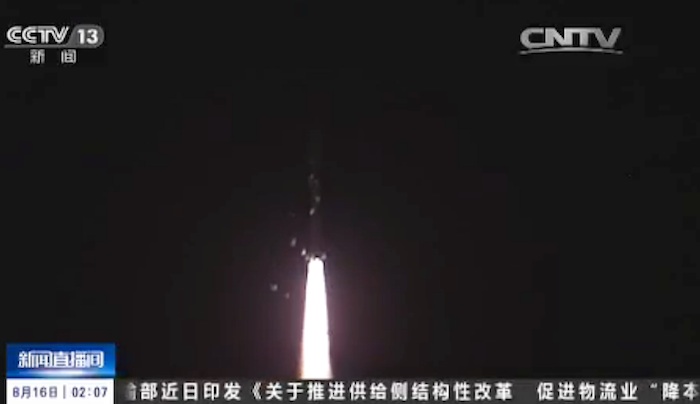
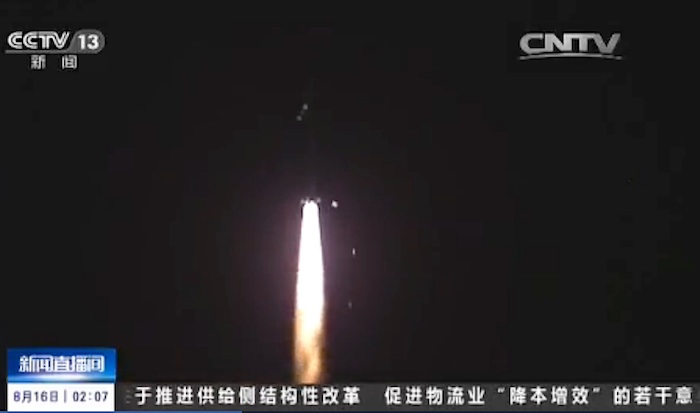
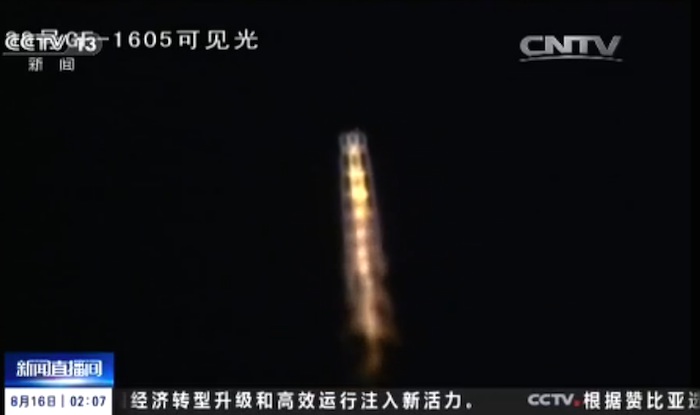
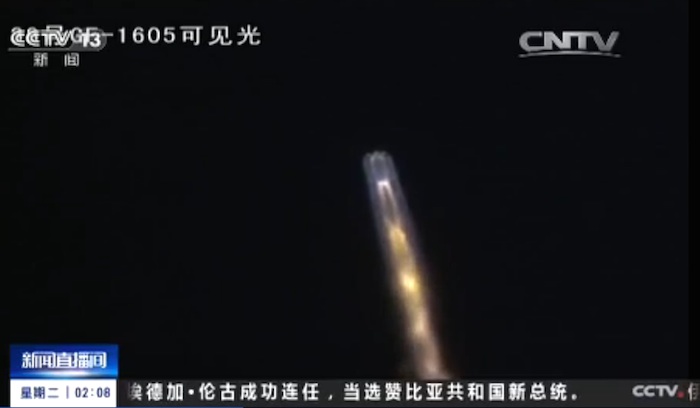
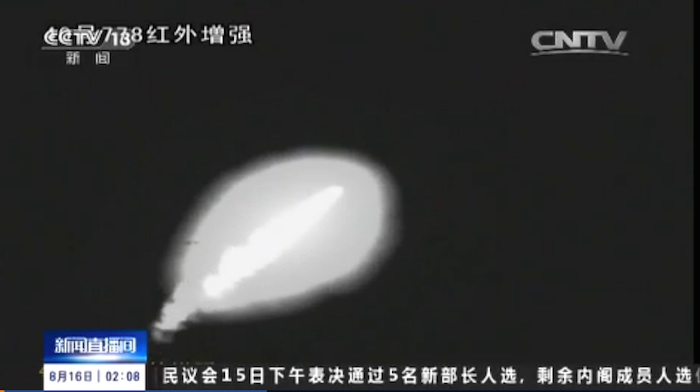
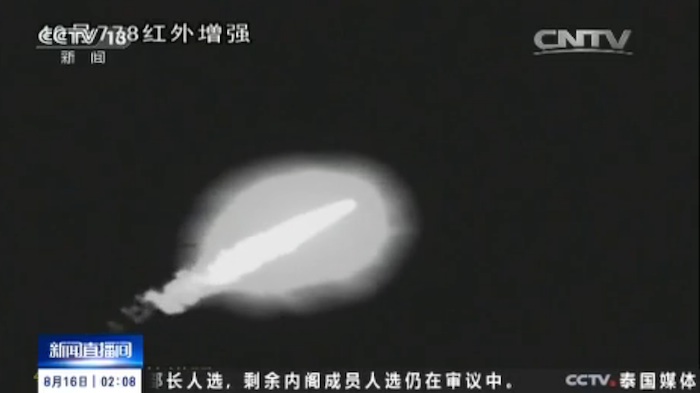
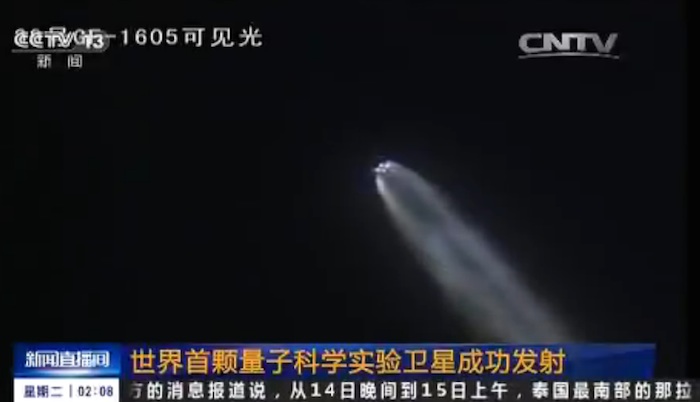
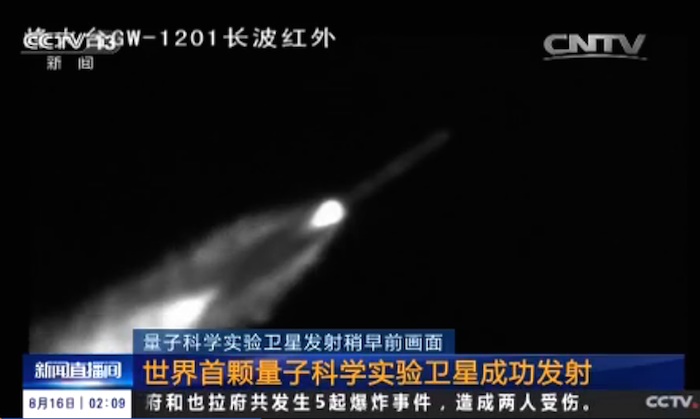
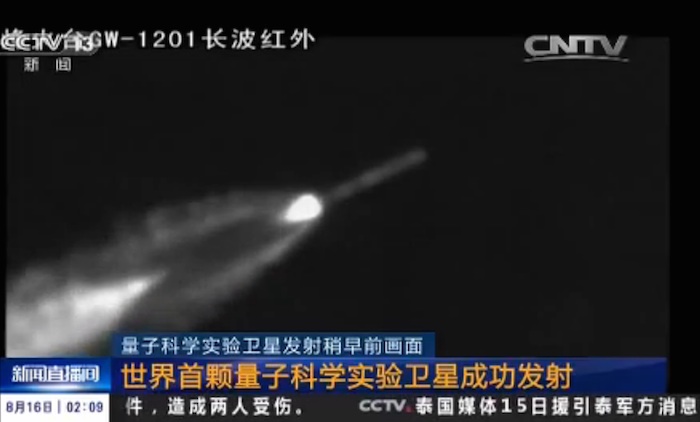
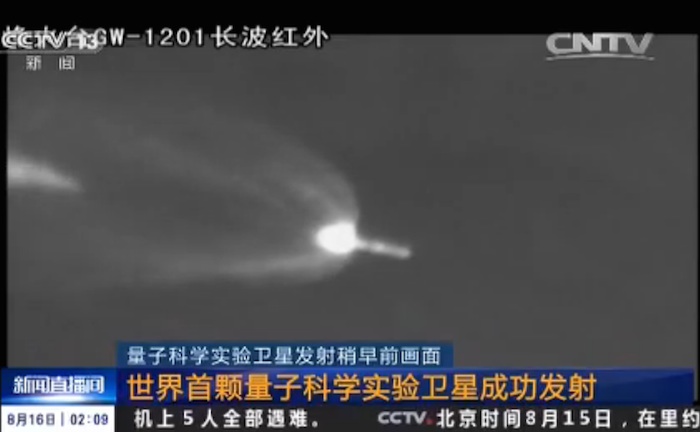
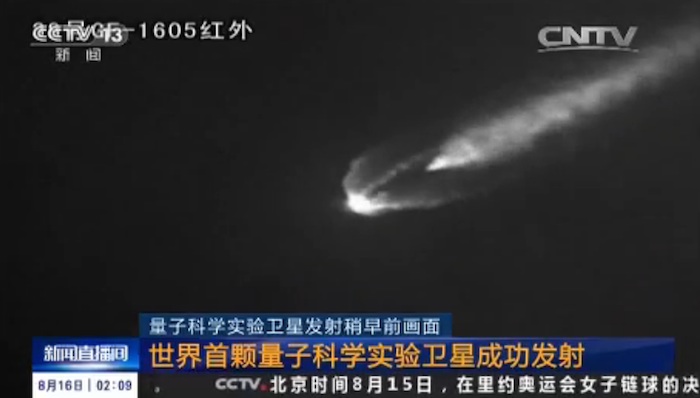
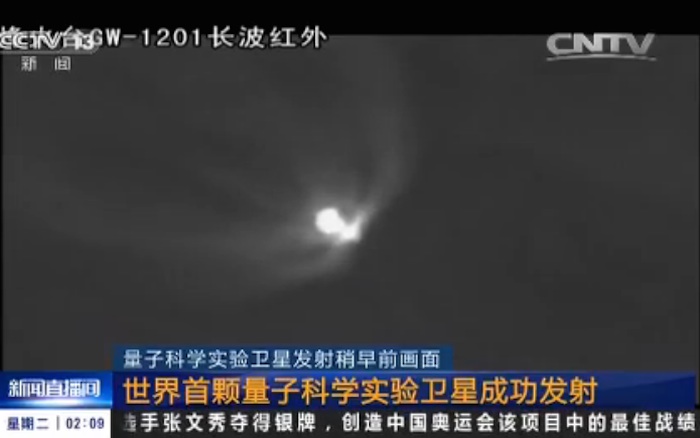
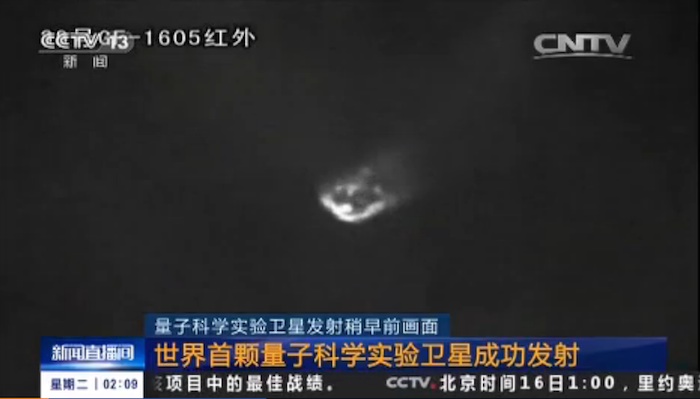
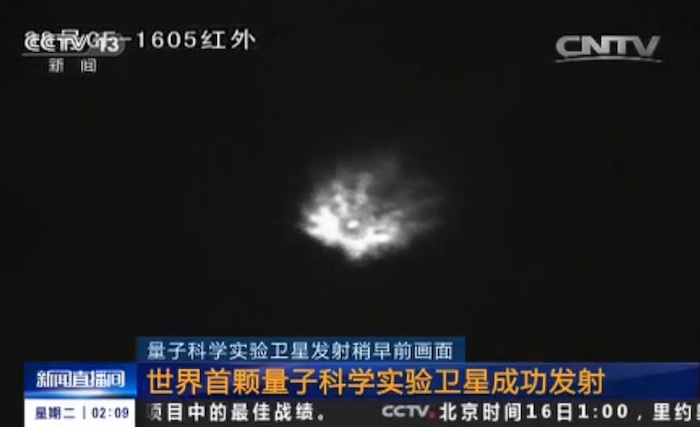
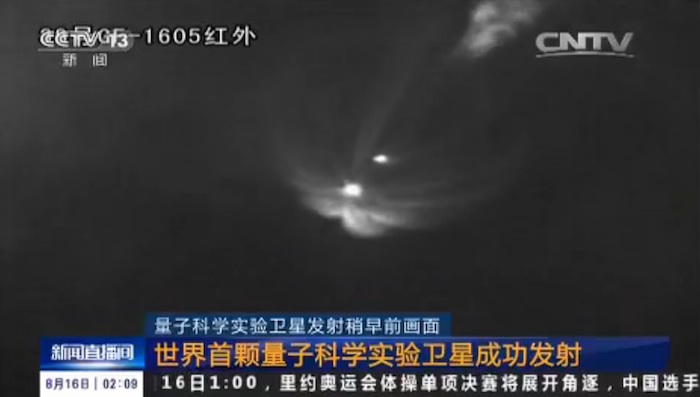
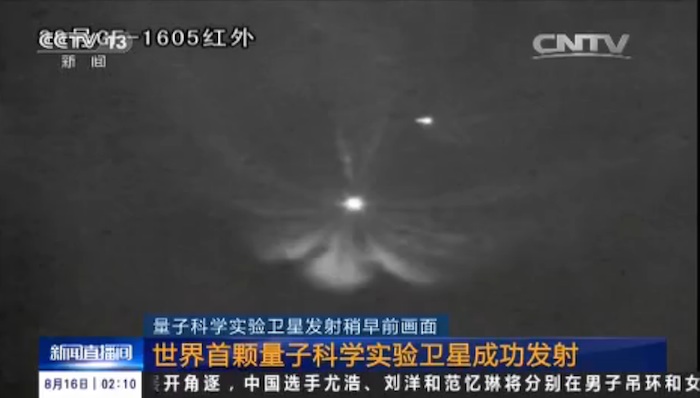
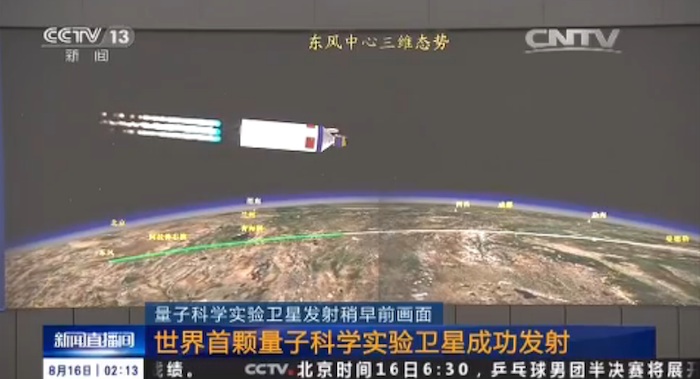
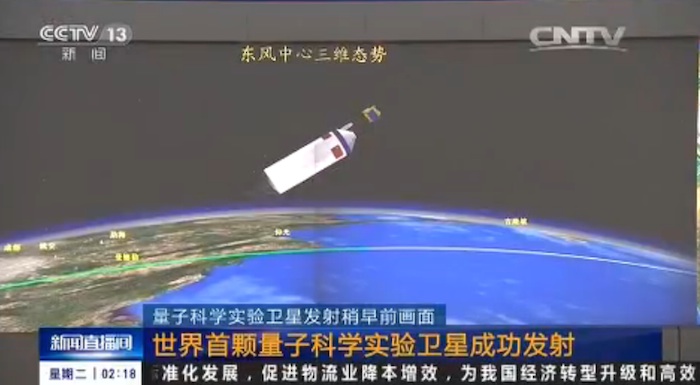
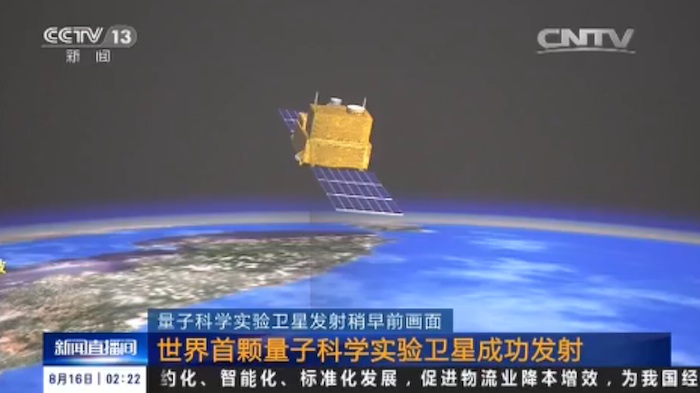
Quelle: CCTV
-
Update: 16.08.2016
.
World's first quantum communication satellite "Micius"
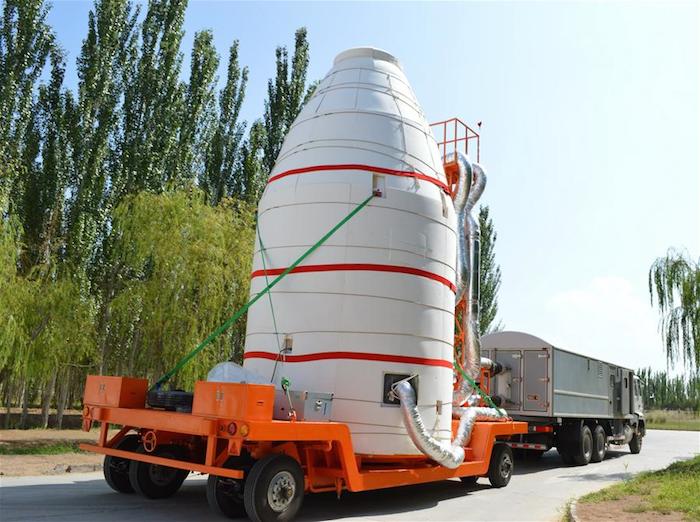
Photo taken on Aug. 5, 2016 shows the experimental quantum communication satellite in its fairing is transfered to launch tower at the Jiuquan Satellite Launch Center in Jiuquan, northwest China's Gansu Province. The world's first quantum communication satellite, which China is preparing to launch, has been given the moniker "Micius," after a fifth century B.C. Chinese scientist, the Chinese Academy of Sciences (CAS) announced Monday. According to CAS, the quantum satellite will conduct experiments on high-speed quantum key distribution between the satellite and ground stations, as well as explore quantum teleportation for the first time in the world.
.
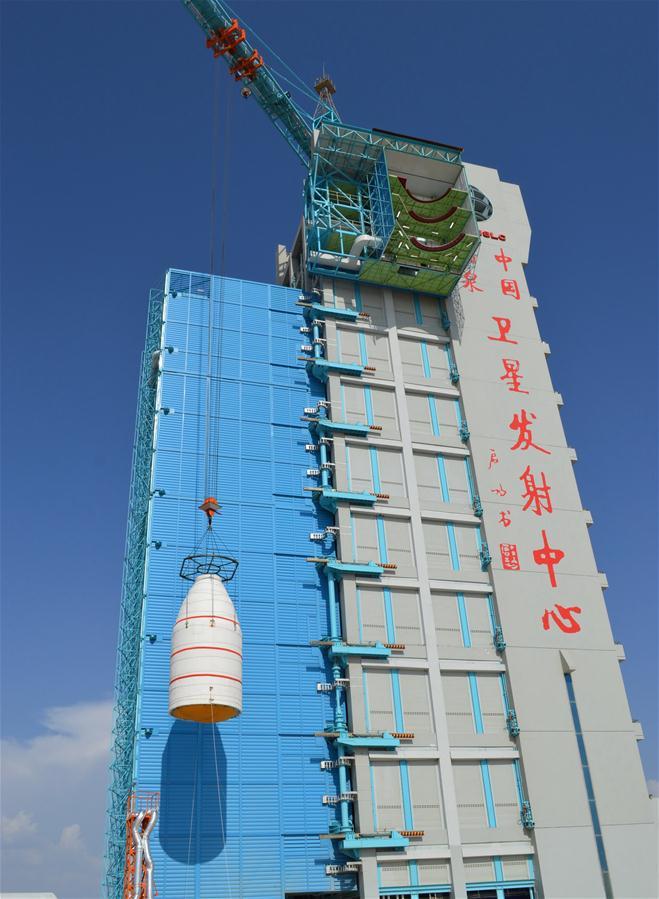
Photo taken on Aug. 5, 2016 shows the experimental quantum communication satellite in its fairing is lifted to be installed on the rocket at the Jiuquan Satellite Launch Center in Jiuquan, northwest China's Gansu Province. The world's first quantum communication satellite, which China is preparing to launch, has been given the moniker "Micius," after a fifth century B.C. Chinese scientist, the Chinese Academy of Sciences (CAS) announced Monday. According to CAS, the quantum satellite will conduct experiments on high-speed quantum key distribution between the satellite and ground stations, as well as explore quantum teleportation for the first time in the world.
-
The world's first quantum communication satellite, which China is preparing to launch, has been given the moniker "Micius," after a fifth century B.C. Chinese scientist, the Chinese Academy of Sciences (CAS) announced Monday.
Micius was a philosopher as well as a scientist. He discovered that light travels in straight lines more than 2,000 years ago and was likely the first person to record an image with a pinhole.
"Just like the Galileo satellites and Kepler telescopes, we used the name of a famous scholar for our first quantum satellite. We hope this will promote and boost confidence in Chinese culture," said Pan Jianwei, quantum communication satellite project chief scientist.
According to CAS, the quantum satellite will conduct experiments on high-speed quantum key distribution between the satellite and ground stations, as well as explore quantum teleportation for the first time in the world.
Quelle: Xinhua
